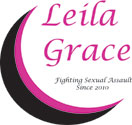Celebrities, it seems, have always been active in political and social justice causes. From the late Muhammad Ali speaking out against racism in America to the modern activism of celebrities who fight for global human rights, these people have chosen to use their high-profile status for justice.
And that tradition has continued more so in recent years with the growth of campaigns like No More (whose ads famously star Law & Order actors Ice-T and Mariska Hargitay) and Vice President Biden’s It’s On Us.
But, as with most things in life, there are always good and bad aspects. These campaigns, no matter the good intentions, have their flaws.
The Good
The campaigns succeed in bringing awareness to their causes. It is important to prevent assaults and to educate the public on the best ways to do that.
Most notably, No More uses male celebrities to focus on male survivors of assault. They bring up toxic masculinity and how it makes male survivors feel emasculated and, consequently, less likely to seek help.
The women celebrities focus on the popular victim-blaming excuses that female survivors often face. Also, the familiar faces of trustworthy television characters can put viewers at ease – recognizing Olivia Benson as an ally.
Both facets of the campaign focus on the survivor not being to blame for the actions of their attacker. They also call out the bystanders who would rather blame the victim than confront the attacker.
It’s On Us has also addressed the underlying issue of sexual assaults: the blurred lines of what constitutes consent. By using celebrities to educate the public on what enthusiastic, informed consent should be, it shows the importance of consent in intimacy.
The Bad
The lack of inclusivity of some of the campaigns is a flaw that both campaigns should remedy. With the rise in openly LGBTQ+ celebrities (like Laverne Cox and Amandla Stenberg), there need to be more celebrity spokespeople. These campaigns should address the sexual violence against these communities because of the higher risk to non-white and LGBTQ persons.
In addition to a lack of inclusivity with regards to their spokespeople, these campaigns often neglect to publicize the truth about the assailants. Instead, they focus on the creep who targets the inebriated person at a party or the pushy person who thinks multiple “no’s” can become a “yes”. This doesn’t take into account beloved figures (clergy, politicians, and celebrities themselves), which isolates these survivors from seeking community with others and getting help.
The Silver Lining
There is nothing inherently bad about celebrities who use their status to bring awareness to important causes. But these campaigns often serve as a band-aid for many. It hides the ugly truth and leaves people feeling as though everything was fixed by a few stickers. But no amount of stickers or celebrity PSAs can substitute institutional and societal change.
While these ads may not be addressing every issue regarding sexual violence, the societal change is happening. After a rapist was reprimanded with a pathetic sentence so as not to harm his future, social media fought back. The people signing petitions to have the judge removed from his position have moved beyond just wearing supportive swag and are calling for meaningful change.
So celebrity activism isn’t perfect. But it is the catalyst some people need to move beyond passive support of social justice and into fighting for everyone’s rights. That’s what’s most important.
